#1
I was raised Mormon. When I learned how much was copied from the Freemasons, I began looking at the non-church sources for information. Finding out your whole life has been a lie is a hell I wish on no one.

Image credits: Scary-Baby15
#2
The Romans figured out how to make heated floors. Central heating sounds like a modern invention, but apparently its been around for 2000 years.

Image credits: SnooChipmunks126
#3
That some people don’t have an inner monologue or voice; and that some people literally can’t picture things in their minds.

Image credits: Late-Republic2732
When we sit down to eat, we often don’t think about the science or history behind what’s on our plate. But food is more than just something to fill us up—it’s full of surprises. From our favorite fruits and veggies to those delicious snacks we’ve been enjoying for years, there’s a lot more to food than meets the eye.
For instance, did you know that your beloved strawberries aren’t actually berries, but bananas are? These little-known facts about everyday foods can completely change the way we see our favorite snacks and meals.
#4
I read somewhere that we can only see about 0.0035% of the electromagnetic spectrum, meaning we’re practically blind to most of what’s going on around us. It made me question how much of reality is hidden from us, existing beyond what our senses can perceive.
Another one that shook me was learning that trees can communicate with each other through underground fungal networks, sharing nutrients and even warning each other about threats. It completely flipped my understanding of forests — they’re not just a collection of individual trees, but more like an interconnected community working together. Reality suddenly seemed a lot more complex.

Image credits: syedadilmahmood
#5
My son is 5 now and I still look at him dumbfounded at times. Like I MADE you. You grew inside of me and now you exist with your own consciousness. And continue to grow. Crazy.
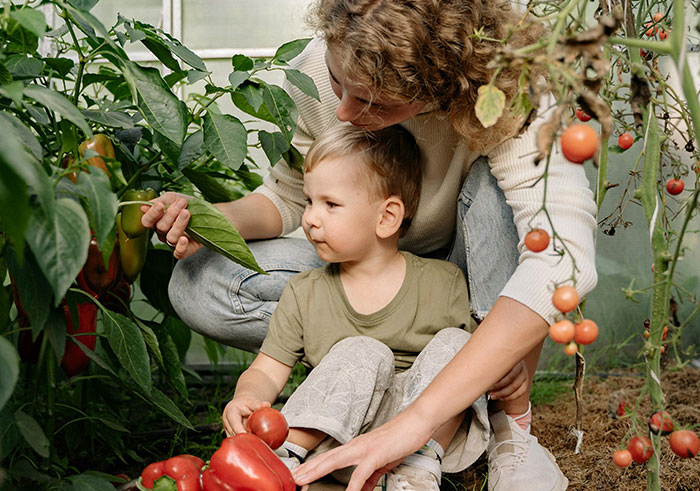
Image credits: Patience_3236
#6
That there is no way to know for sure if you and any other person sees the same color when looking at the same thing.

Image credits: DigGumPig
Many of us enjoy eating classic berries like strawberries, raspberries, and blackberries, but here’s a twist—they’re not real berries at all! Surprisingly, bananas are scientifically classified as berries, along with eggplants, grapes, and oranges. Confused? You’re not alone!
The reason behind this mix-up is pretty simple: people started calling certain fruits "berries" way before scientists came up with a proper definition.
#7
That everyone you know or have met has a different version of you in their minds. Their perceptions are based on their interactions or impressions of you. No one really sees you exactly the same way.

Image credits: oneredhen1969
#8
Not really a fact, but a feeling. I was raised in a religious setting, so the question became "If God made everything, who made God?" I used to spiral into these thoughts, like "How does the universe exist?" "Where did everything come from?" "How is it possible to exist? Nothing can exist!" I eventually learned about dimensionality and stuff and put it to bed with the fact that whatever the answer is, I have no capacity to understand it anyway.

Image credits: GDMFusername
#9
You know those fun universe animations that starts out with the earth, or maybe something on earth, then zooms out bit by bit, comparing us to something larger in the universe? Then it keeps going. You can't see earth anymore, but you can focus on the sun. But then the sun is gone. And we're still getting smaller because we haven't gotten to the biggest object yet. Smaller and smaller and smaller. We barely even exist. But I complain about the drive to Dallas.
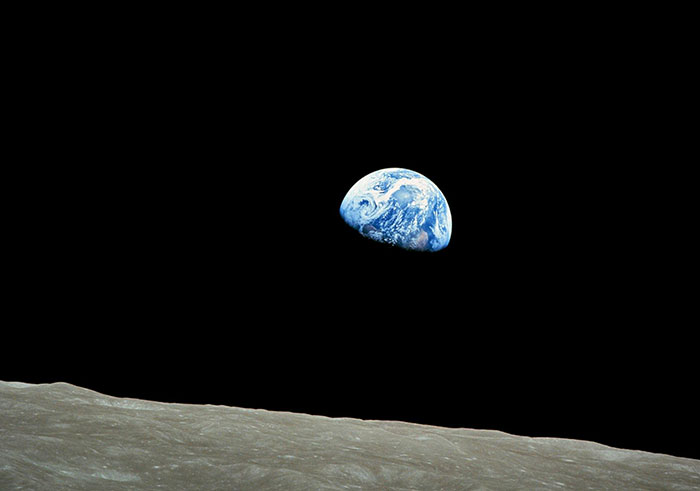
Image credits: girlikecupcake
According to Judy Jernstedt, a plant sciences expert from UC Davis, the word “berry” was used for centuries without a scientific explanation. But now, we know that for a fruit to be a true berry, it needs to have three distinct layers: the exocarp (which is the skin), the mesocarp (the juicy middle), and the endocarp (the part that holds the seeds).
#10
These were both from when I was relatively young, 7 or 8. And obviously as a result of the religious environment I was raised in.
1. There are religions other than Roman Catholicism. I thought RC was just what everybody did.
2. People *actually believe their religions are true*. I thought that everyone else was just going along with things for whatever reason - as I was - because, even as a kid, none of it made sense. I quickly learned that questioning things just got you in trouble so did what I was told.

Image credits: BuzzVibes
#11
That one about how bananas are berries but strawberries aren't really berries... like what even is fruit anymore.
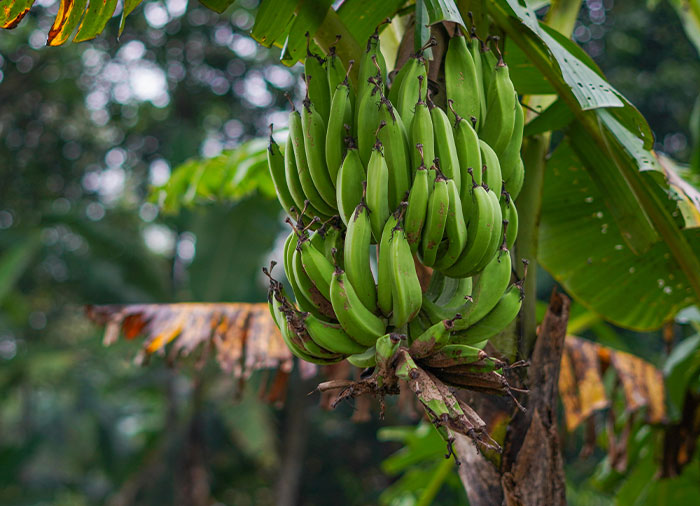
Image credits: angelmixy
#12
Dude when I found out honey never spoils like how is that even real... is it just magic or what?
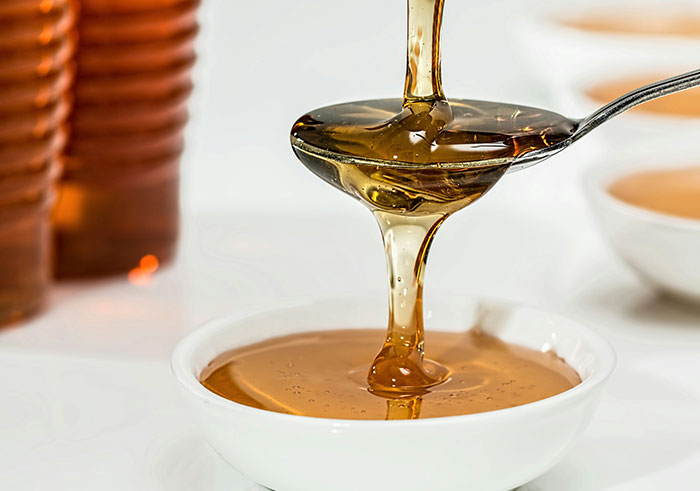
Image credits: ypuresweety
Just like bananas, watermelon also fits the scientific definition of a berry because it has those same three layers. In bananas, the peel is the exocarp (outer skin), the flesh we eat is the mesocarp, and the little seeds inside are protected by the endocarp.
Watermelons have the same structure—though the exocarp is tougher, appearing as the thick rind, and the juicy red part is the mesocarp. Who would’ve thought that bananas and watermelons would have so much in common?
#13
That we had thought before we had language.
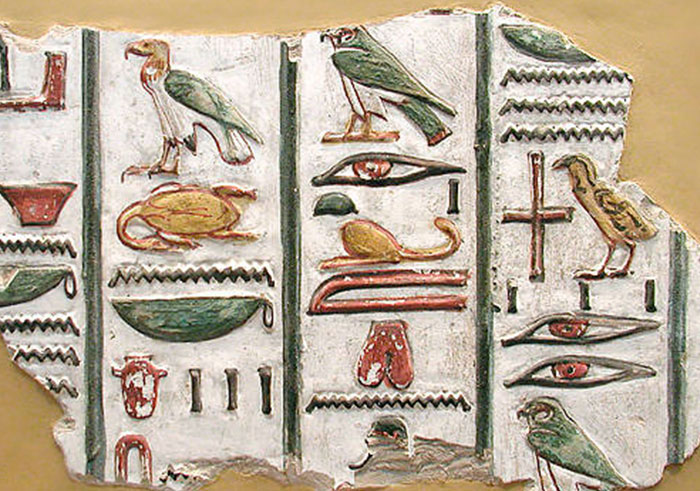
Image credits: CarboniteCopy
#14
Apparently schizophrenia can hit anyone at any time, and using psychoactive d***s (like LSD and magic mushrooms) significantly increase the chances of you getting schizophrenia. To keep a long story short, it isn't a stretch to say that most religious and philosophical figures of our past were probably schizophrenic since many religions and metaphysical questions before science were based on visions, voices, and generic "signs" of whatever sparked their tirades. Makes me wonder a lot about how reality and unreality are just a matter of perception.
#15
My physicist husband claims that there are differently-sized infinities. Apparently, a lot of mathematicians think that, too. HOW????

Image credits: CrowRoutine9631
If you’re a fan of peanuts, here’s a fun fact: you're actually snacking on legumes! That’s right, despite the “nut” in their name, peanuts belong to the same family as beans, lentils, and soybeans. They grow in pods, just like other legumes. Still, many of us think they are tree nuts like walnuts, almonds, or hazelnuts.
#16
When you do a proper shuffle of a normal 52 card deck, the resulting shuffle order of the cards has a very near 100% chance of that being the first time that order has ever happened in the history of the universe.
#17
The double-slit experiment. Even when you slow the experiment down so that it's only a single photon, electron, etc. being measured you still see the interference pattern. Unless you put your detector behind the slits, then it's a solid set of two lines behind the slits.
It's almost like the universe is rendering itself differently based on observation.
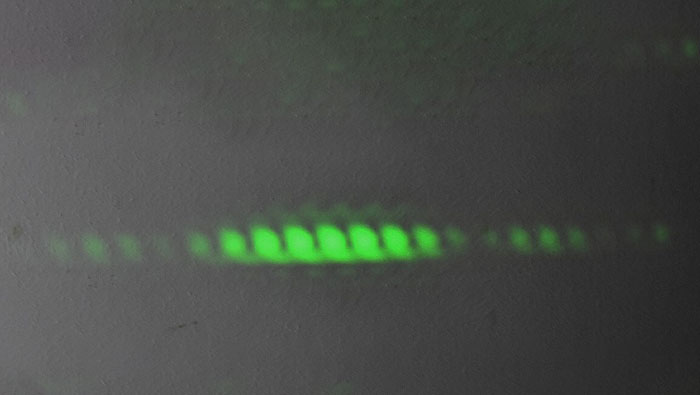
Image credits: Mr_Lumbergh
#18
Most everything is made up of nothing. The distance between the nucleus of an atom and the electron is insanely large.
If the nucleus were a ping pong ball, the electron would be about 2 mi away.
Broccoli might seem like a totally natural veggie that many of us might love or hate, but it actually has an interesting backstory. It’s a result of farmers tinkering with wild cabbage, also known as wild mustard, for centuries! The original wild mustard plant had edible parts, but they were pretty bitter.
So, farmers started picking and planting seeds from plants with traits they liked more, slowly creating what we now know as broccoli. This process is called selective breeding, where humans step in to guide how a plant evolves over time. So, broccoli wasn’t just found growing in the wild—it was carefully developed over hundreds of years!
#19
Platypuses (male) are venomous.

Image credits: Gumbercules81
#20
Octopuses have three hearts and blue blood. Like, what kind of alien sea creature is that?
#21
How infinite the universe is and we don't know much about it.
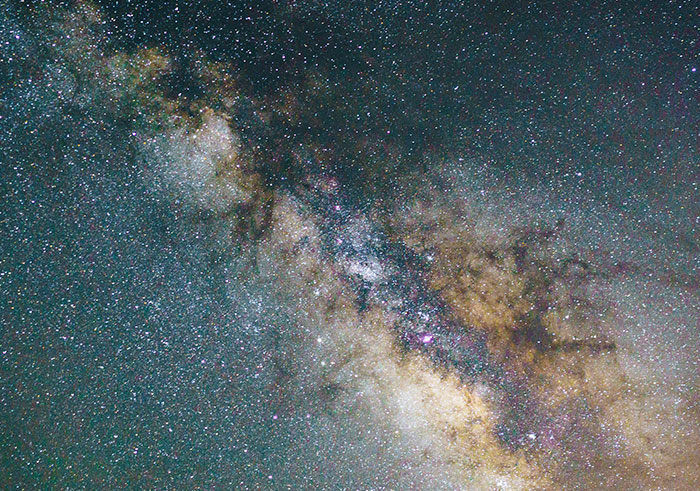
Image credits: RosePetal_23
Most fruits take a while to grow, but pineapples are in a league of their own—they can take up to two years to ripen. So, the next time you slice into a pineapple, take a moment to appreciate the journey it took over those 24 months to become the sweet, juicy treat we love.
#22
Brain Eating Ameobas are everywhere and the only reason people don't constanly dying from them is because it's really hard for them to enter our bodies through our nose.
#23
Saudi Arabia is a net importer of sand and camels.

Image credits: Luisguirot
#24
One fact that often blows people’s minds is that the universe is constantly expanding.
Ketchup is a household staple that we don’t really need to introduce. Whether you’re dipping crispy fries or savoring crunchy onion rings, it’s hard to imagine enjoying appetizers without a bowl of this sweet and tangy sauce.
But did you know that ketchup’s journey began as a medicine, not a condiment? Back in the 1830s, people thought tomatoes could cure indigestion, so ketchup was actually sold as a remedy in pill form.
#25
That about 97% of the observable universe is already out of reach for us even with light speed technology.
#26
Human comprehension of reality is so far from accurate its functionally useless. Every understanding, scientific discover, whatever we make, is at BEST just us trying to make things make sense to us. But humans simply don't have the brainpower/hardware to come anywhere close to an actual understanding of reality.
It's like an ant walking on an iphone. Its brain can process things like "this surface is smooth" "there is no food here" and thats about as complex as it can get, but that's nowhere near the level of complexity of the iphone itself.
#27
It is literally impossible to describe, in words, what quantum superposition is. Everything you've heard about quantum superposition is, at best, "sort of right" but also "alot wrong" but we *don't have a way to describe it properly* so those half-assed (schrodinger's cat, both and neither at the same time, etc) 'explanations' just stick around because without understanding the math you just can't understand quantum superposition properly.
Quantum reality is simply that different from macroscopic reality. Our intuition cannot comprehend what is happening. I do not understand quantum superposition, and unless you're a theoretical quantum physicist neither do you. And some of them don't!
But we *know* it's real. It happens. It affects reality. We cannot convey what is happening with words. That f***s with me so hard.
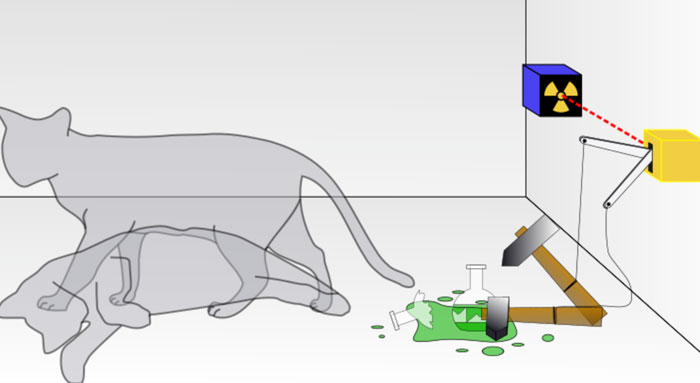
Image credits: xyponx
If you have a favorite color when it comes to bell peppers, here’s a fun fact: they’re all the same pepper, just at different stages of ripeness. Green bell peppers start off as unripe versions, and as they mature, they transition to yellow, then orange, and finally red. Interestingly, the red bell peppers are the sweetest of them all.
It’s not just food that has surprising facts; the world around us is filled with intriguing tidbits, just like the ones in this post, that can genuinely make you question reality and change your perspective. Which one of these facts caught you off guard the most?
#28
I learned that lobsters can theoretically live forever, and now I’m questioning why we’re not all trying to unlock the secret to lobster immortality.
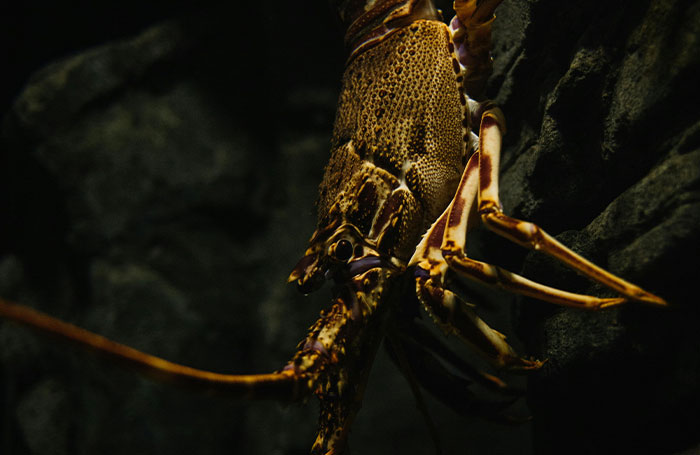
Image credits: Prestigious_Club_609
#29
Who ever spends more money on their lawyer, wins in court. Truth doesn’t matter. It only matters who argues better.
#30
Light doesn't experience time. From its departure from a quasar on the far end of the universe to a sensor on a space telescope that was built a decade ago, the journey took almost the entire lifespan of existence.
And yet, as far as the photon is concerned, the trip was instantaneous.
If that wasn't wild enough, here's the real mindf***: There's no such thing as a free photon. They only exist as a carrier for energy exchange between electrons. For a photon to exist it has to have a sender and a recipient. Two electrons separated by the entirety of space and time somehow agreed to exchange a photon.
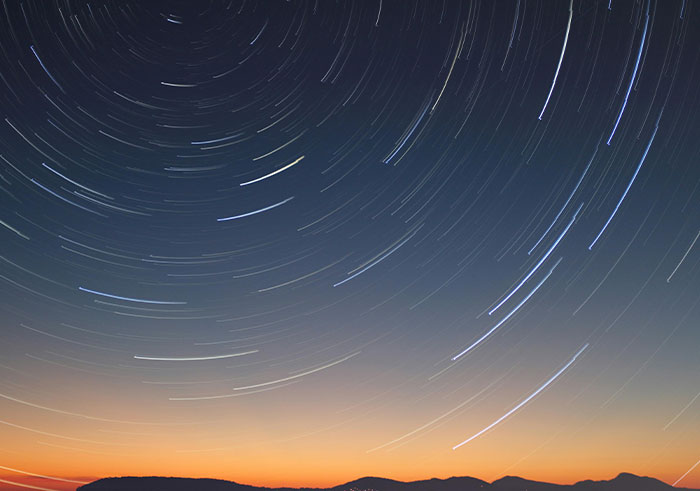
Image credits: Majik_Sheff
#31
If you had a really long stick that connected to the Moon, and you pulled the stick, the other end of the stick wouldn’t move instantly. It would take as long as it takes for the speed of sound travelling through wood to reach the Moon from Earth for the other end to move as a result of your pulling the stick
I think the thing that gets me about this is I knew everything I needed to know to reach this conclusion on my own but I’d literally just never thought about this specific hypothetical before, and when you actually write it out like that it feels so counterintuitive even though I intellectually understand all the component pieces that make it true.
#32
I remember watching a video on how the universe might end. It was a 30-minute time lapse of what occurs from the Big Bang to the "end." EARTH'S entire existence from beginning to end wasn't even a minute before it formed and burnt out. Really felt insignificant just trying to comprehend the time frame of the universe.
#33
Quantum entanglement. There are particles light years apart that react instantaneously when the other is touched. We live in a world of magic and wonder.
#34
How big the universe is. Conversely, how small the smallest building blocks of the universe are.
#35
When measuring a coastline, the smaller the unit of measurement, the longer it is.

Image credits: p0tat0p0tat0
#36
"The Birthday Paradox" is a fun one. I wouldn't say I "questioned reality" as I am math nerd, but it's fun to share with people who aren't so inclined.
For those unaware, it deals with the probability of two randomly chosen people out of a larger group of people having the same birthday, and that you only need a room of 23 people for that probability to be greater than 50%. 50 people and it becomes 97%.
To explain a little further on why this ends up seeming so surprising/impossible for most people when they first hear this, it's because people often confuse the premise of "probability that 2 randomly chosen people share a birthday" with "probability that 1 other randomly chosen person shares MY birthday", which is not the same calculation.
#37
I read once that the arrangements of molecules or cells or atoms (i really can recall what precisely) looks eerie similar to the way galaxies and clusters look.
This made me think that perhaps our universe is just a sumatomic thing within something larger, like a fly in a cats a*s.
Image that!
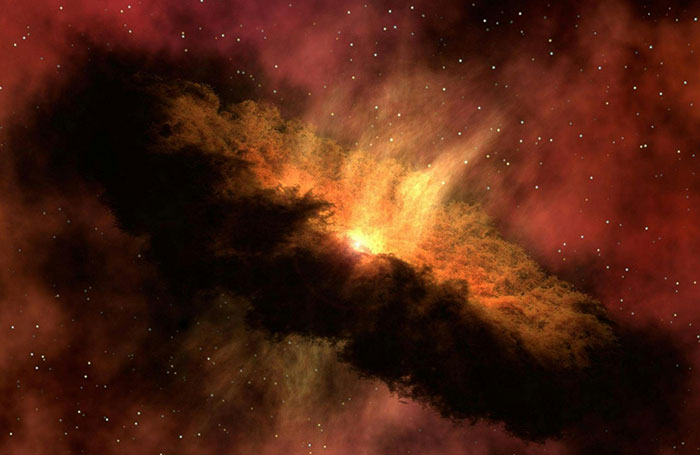
Image credits: Noelojm
#38
Chicagos parking meters are paid out to a non USA nation for the next like 50! Years!
#39
Just learned today that if a photon enters a cloud of atoms that are cold it can leave that cloud before it enters.
negative time.
[https://www.newscientist.com/article/2448067-light-has-been-seen-leaving-an-atom-cloud-before-it-entered/](https://www.newscientist.com/article/2448067-light-has-been-seen-leaving-an-atom-cloud-before-it-entered/).
#40
Time dilation.







